Blog » Fundamentals of Coaching » Top 10 Must-Read Books On Coaching Philosophies
Top 10 Must-Read Books On Coaching Philosophies
Coaches do in their practice what and how they do it tends to be shaped by their principles and values, attributes that are believed to comprise their respective coaching philosophies.
It is believed that if one wants to do good practice, one needs to articulate their philosophy clearly, as it provides direction and focuses on how one does the coaching job.
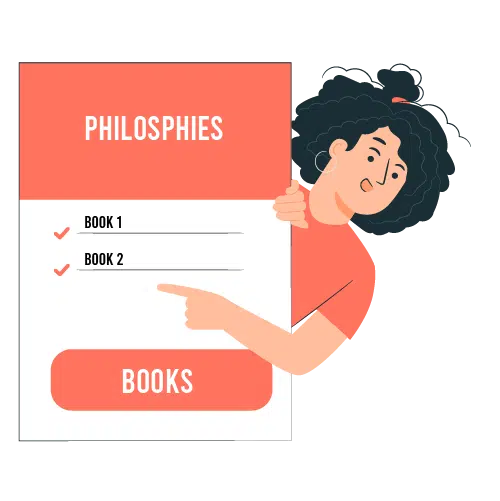
Almost every related coach education publication or course has a subsection and an exercise to develop a coaching philosophy.
It is very important to understand coaching philosophies and the role of coaches. This article lists the top 10 must-read books on coaching philosophies.
In Brief : Top 10 Must-Read Books On Coaching Philosophies
- The Life Coaching Handbook – Curly Martin provides a comprehensive guide to life coaching, offering insights into self-coaching and coaching others; cost information not provided.
- Coach The Person, Not The Problem – This book, emphasizing a client-focused approach, challenges traditional coaching methods, advocating for reflective inquiry and intentional direction in coaching sessions; cost information not provided.
- The Obstacle Is The Way – Drawing on Stoic philosophy, Ryan Holiday explores how facing challenges head-on can lead to success, citing historical examples and providing inspiration for personal and professional growth; cost information not provided.
- How We Show Up – Mia Birdsong discusses the importance of community and interconnectedness, highlighting the need to break down societal walls and embrace vulnerability for collective well-being; cost information not provided.
- Before Happiness – Shawn Achor’s book focuses on the precursor of success—happiness—and provides strategies to develop a positive outlook, improve communication, and enhance overall engagement; cost information not provided.
- The Coaching Habit – Michael Bungay Stanier introduces seven transformative coaching questions, encouraging leaders and coaches to prioritize inquiry over providing solutions, fostering personal and professional development; cost information not provided.
- The Clarity Method – This book emphasizes the importance of understanding core values for personal and professional success, offering a method to help individuals overcome procrastination and make decisions aligned with their values; cost information not provided.
- Co-Active Coaching – Laura Whitworth and co-authors present the Co-Active Coaching model, a flexible approach applicable in various contexts to build collaborative relationships; cost information not provided.
- You’re It!: On Hiding, Seeking, And Being Found – Alan Watts explores the concept of the universe as play, encouraging readers to embrace life fully and find their capabilities through the game of existence; cost information not provided.
- Mindset: The New Psychology Of Success – Carol Dweck’s renowned work introduces the concept of mindset, emphasizing how our beliefs about abilities impact success, and she explores the growth mindset’s role in various aspects of life; cost information not provided.
Defining Coaching Philosophies
A coaching philosophy is a statement of your value and approach to your coaching role. It talks about your purpose as a coach and how you will approach player development and winning.
To achieve your objectives, your coaching philosophy must include your major objectives and the beliefs and principles you adhere to.
A coaching philosophy is usually a few sentences long. Some people can capture their philosophy in a few words. Others have a philosophy statement that extends for several paragraphs.
Coaches should be good thinkers because all good philosophies, regardless of length, explain the purpose of coaching and the beliefs and principles the coach follows to achieve his or her goals.
How Coaching Philosophy Books Help a Coach?
As a coach, you must keep increasing your knowledge of the craft because there is no substitute for experience. It’s a good idea to use books as a resource for this. They are a source of information, provide you with alternative viewpoints, and can challenge you to look at how you currently operate.
The books are divided into two different sections. The first section is for books that are related to coaching. Some of these focus on a particular sport, while others look at coaching. The general books section is in the second section.
A range of topics, which can be related to coaching, can be covered in these. It is a good idea to read widely and incorporate what you learn into your practice because several fields can inform how we coach.
10 Books on Coaching Philosophy
A coaching philosophy book can be used to help guide the coaches in their process of coaching. A coach can get clear guidance on the objectives that should be pursued and how to achieve them by having a philosophy. By sticking to their philosophy and reading books, coaches can make consistent decisions and broader life coaching questions. Here we provide an excellent list of the most important coaching philosophy books.
1. The Life Coaching Handbook
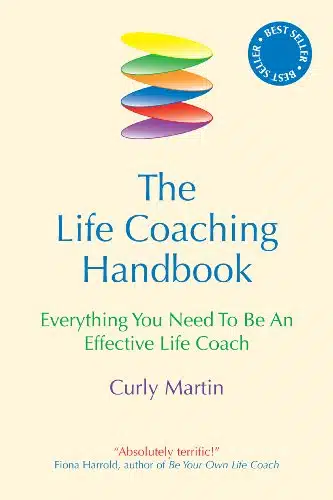
A complete guide to life coaching will show you what life coaching is and how it can benefit you and others. It also gives you a plan for taking charge of your life by learning to coach yourself and others.
Leading you through a comprehensive Advanced Life Coaching Skills program, The Life Coaching Handbook is the essential guide for life coaches and a key sourcebook for NLP practitioners, human resources managers, training professionals, counselors, and the curious. Curly Martin is a professional life coach, author, trainer, and master practitioner of NLP. Her clients include CEOs, directors, and actors for over two decades. She has worked with thousands of people in corporate and private settings.
2. Coach the Person, Not the Problem
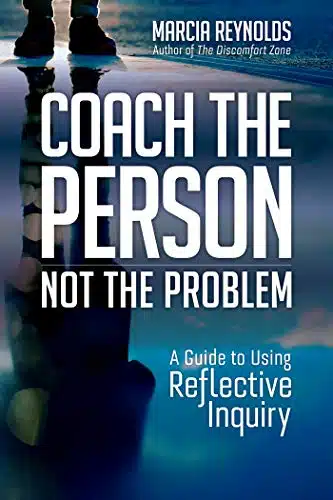
A founding member of the coaching movement, this book offers a complete system for working with people by listening to their words and then re-articulating them in ways that cause them to see themselves and their world through new eyes.
The best coaches ask open-ended questions. “Marcia Reynolds says that coaches rely too much on asking open-ended questions. “Clients are encouraged to think for themselves, but questions only seek answers. Hearing your thoughts, opinions, and beliefs from someone else will encourage you to consider how your thinking affects your goals critically. Reflective inquiry works. It shows you why it works. It gives you tools, tips, and structures to create breakthrough conversations.
This book is about giving your coaching sessions an intentional direction and helping your clients become more reflective about what they’re trying to get out of the experience. It will help you avoid asking the “magical question” by focusing on the client instead of addressing the client’s concerns. Using the practices outlined in this book will help create a space for your clients to feel safe, seen, and valued for who they are. Coach become change agents who actively recharge the human spirit. And with these customized solutions, clients naturally dive deeper and develop a personalized approach that will surprise their coach.
3. The Obstacle Is The Way
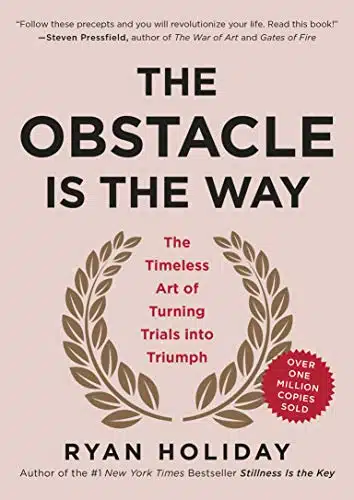
The Obstacle is the Way has become a popular coaching philosophy book that’s inspired people from all walks of life. If you’re a man or woman who wants to make a meaningful change in your career, relationships, personal goals, and health, this is the book you need to read.
The ancient Greek philosophy of Stoicism inspires this book. Ryan Holiday reveals how some of the greatest minds in history have made their success. John D. Rockefeller, Benjamin Franklin, Winston Churchill, and Albert Einstein, to name a few. It’s easy to apply Stoicism to a difficult situation; it takes real discipline to apply it in the face of what may seem an impossible challenge. They embraced these principles because they were more important to them than their natural intelligence, talents, or luck.
If you’re stuck in a rut, frustrated, or demoralized, this book can help you turn your problems into your biggest advantages. Along the Way, you will be inspired by many true stories of the greats from every age and era.
4. How We Show Up
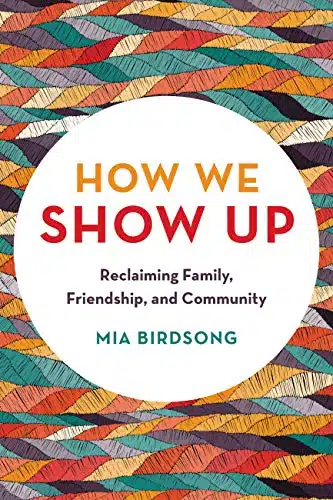
When activist and writer Mia Birdsong gives speeches to think tanks, policymakers, and executives, one of those leaders whispers to her after the meeting that he wants the deep community she describes.
We think it makes sense that living a happy life can make us feel isolated and unhappy. But in a divided America, where most people have lost contact with their neighbors and everyone is either a winner or a loser, we’ve forgotten the key element that helped us make progress in the first place: community. It’s not just about race, class, gender, values, beliefs, or injustice. What differentiates us as humans is our denial of our interdependence and need for belonging. That’s what Mia Birdsong shows in her provocative, groundbreaking book. We build walls around us, and instead of leaning on each other, we lean on concrete.
Through research, interviews, and stories of lived experience, this book returns us to our inherent connectedness and ability to be vulnerable and generous, ask for help, and be accountable. When you show up–literally and figuratively–you lead us toward the promise of our collective vitality and to the liberated well-being that all of us desire.
5. Before Happiness
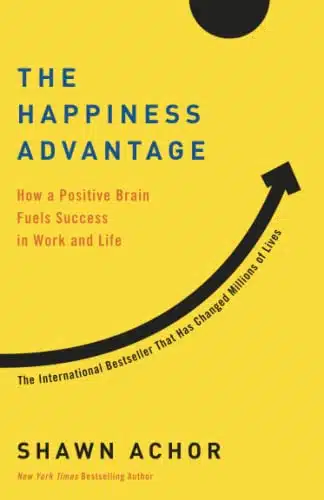
Adam Grant, New York Times bestselling author of Think Again and host of the podcast Work Life, said, “This fresh, uplifting book is filled with ideas for improving our organizations and lives.
In his internationally best-selling book The Happiness Advantage, Harvard-trained researcher Shawn Achor describes why happiness is the precursor to greater success. Happiness is about what comes before both. Dyadic and Triadic Relationships in the Development of Eating Behaviors in Female Adolescent Anorexia Nervosa.Because before we can be happy or successful, we first need to develop the ability to see that positive change is possible. There is a lot of value in seeing the world through a more positive lens. When we do that, we can use all our motivation, emotion, and intelligence to achieve our personal and professional goals.
Learn how to master these strategies, and your body language, communication, and interaction with others will improve. You’ll be able to generate positivity, motivation, and engagement in everything you do.
6. The Coaching Habit
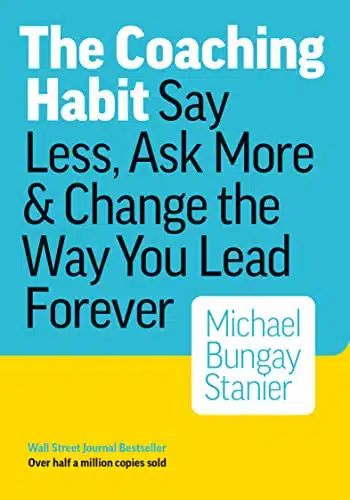
By learning the strategies in this book, you’ll create a renewable source of positivity, motivation, and engagement that will allow you to reach your fullest potential.
It’s far easier to be a coach than to be a teacher. The courage to ask a question is more important than providing an answer or unleashing a solution. Giving another person the opportunity to find their way, make their own mistakes, and create wisdom is both brave and vulnerable. In this practical and inspiring book, Michael shares seven questions that can make a difference in how we lead and support. “He guides us through the tricky part – how to take this new information and turn it into habits and daily practice,” said Brennan Brown, author of Rising Strong and Daring Greatly.
7. The Clarity Method
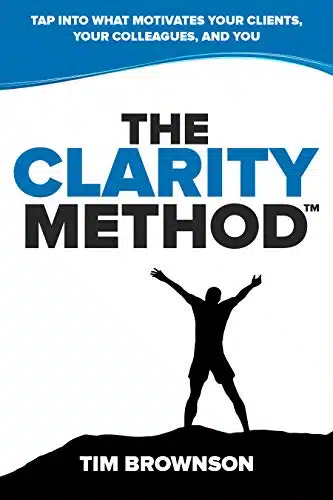
The Clarity Method is an important tool for those who want to help people overcome procrastination, make better choices, and succeed. It’s a method for helping them to decide to take action.
Knowing your core values is an important aspect of being successful in life. A great leader, business coach, manager, life coach, or someone who takes their happiness seriously must understand the critical importance of core values. Everyone has several core values that underpin all decisions, whether they’re aware of it. We never achieve our full potential until we have achieved those values in ourselves and others.
8. Co-Active Coaching
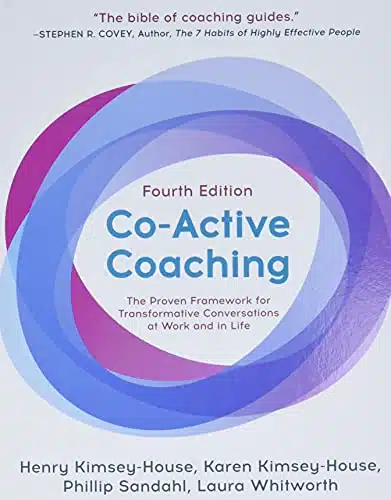
Laura Whitworth and her co-authors set the stage for what has become a cultural and business phenomenon and helped launch the professional practice of coaching with their first edition of Co-Active Coaching. The flexible Co-Active Coaching model has stood the test of time and can be used by co-workers and teammates, managers, teachers, and students to build strong and collaborative relationships.
9. You’re It!: On Hiding, Seeking, and Being Found
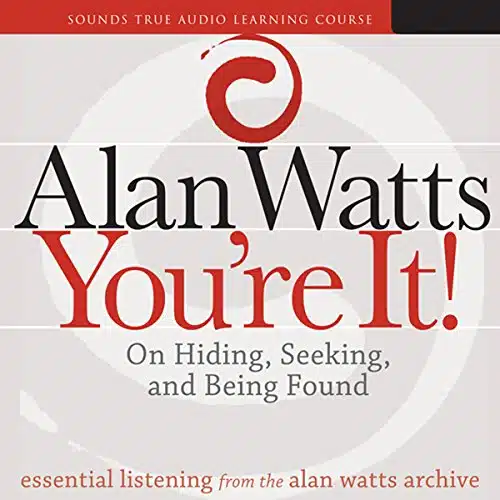
It’s time to find out what you’re capable of and where you can take your life. So what are you waiting for? It’s time to stop playing it safe and to play the game! In this insightful book, Alan Watts explores the surprisingly liberating concept of “the universe as play” at the heart of Hinduism, Zen, and other wisdom traditions.
Mark Watts carefully selected “You’re It: On Hiding, Seeking, and Being Found”, which features more than 10 hours of restored historic talks from the “spiritual entertainer” who helped define Eastern thought to audiences in the West. Listeners can experience the brilliance of one of the greatest spiritual voices of the 20th century here.
10. Mindset: The New Psychology of Success
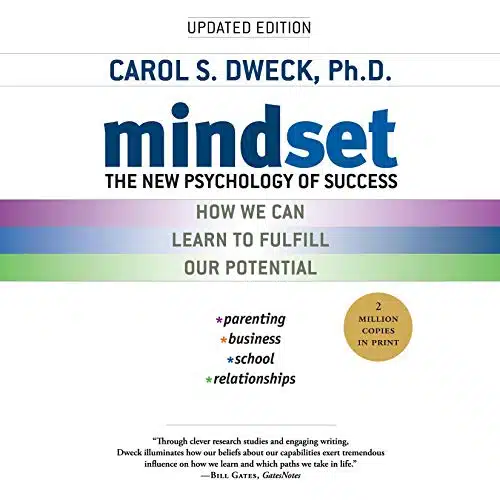
This updated edition of the million-copy bestselling book comes from the renowned psychologist who introduced the world to the growth mindset.
In The Power of Belief, Stanford University psychologist Carol Dweck explains that how we perceive our abilities (our internal working model of the world) is critical in determining how well we perform. She shows how our beliefs can help us get what we want or prevent us from reaching our potential.
Carol S., a world-renowned psychologist, has finished her research. Scientists discovered the power of mindset. Success in school, work, sports, arts, and almost every area of human endeavor can be dramatically influenced by how we think about our talents and abilities. People with a fixed mindset are less likely to flourish than people with a growth mindset. Great parents, teachers, managers, and athletes can all use this idea to foster outstanding accomplishments.
Conclusion
There are many great books out there about coaching philosophies and leadership styles. In this blog, we listed 10 books to find the best books on coaching philosophies. If you are a coach or leader, these books will help you better understand how to lead, manage, and motivate people.
Frequently asked questions
What are good coaching philosophies?
It’s a tool of coaching that helps to coach philosophy and guide the coaches in their coaching process. A coach can get clear guidance on the objectives that should be pursued with the help of philosophy.
How do I find my coaching philosophy?
Follow the five steps to find your coaching philosophy:
1.Pick out your objectives
2.Link your style to your coaching philosophy
3.Express your coaching philosophy publicly
4.Determine what is important to you
5.Pick your values first
What does a coaching philosophy look like?
There’s more to your coaching philosophy than the techniques and tactics of your sport. Values, beliefs, and guiding principles are what determine how you coach. It would help if you allowed the game to be shaped by your experiences as a person.
What is the philosophy of life coaching?
A coaching philosophy is a collection of statements about what you value and how you approach your coaching role. Your purpose, beliefs, and principles are all addressed by it.


ABOUT SAI BLACKBYRN
I’m Sai Blackbyrn, better known as “The Coach’s Mentor.” I help Coaches like you establish their business online. My system is simple: close more clients at higher fees. You can take advantage of technology, and use it as a catalyst to grow your coaching business in a matter of weeks; not months, not years. It’s easier than you think.
AS SEEN ON
0 Comment